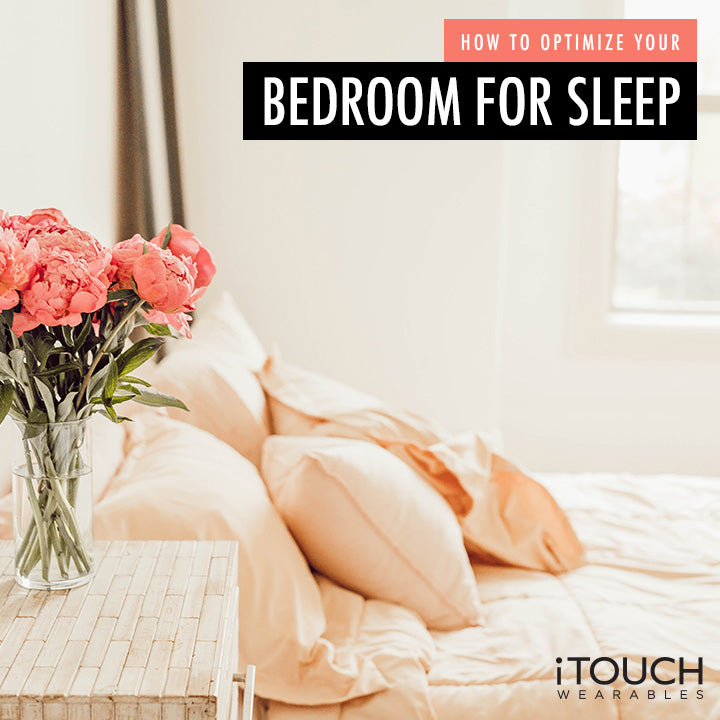
How To Optimize Your Bedroom For Sleep
You can go to the gym and have all the healthy food in the world, but at the end of the day, it all comes down to your sleep. You may think you're getting enough hours of sleep and your sleep schedule is fine, but do you know how to optimize your bedroom for sleep? These simple tips can make sleep more rejuvenating.
Set An Actual Alarm Clock

Many of us are guilty of using our phones as alarm clocks. Nonetheless, these tech devices emit blue light that messes with your circadian rhythm from the bedroom. Therefore to optimize your bedroom for sleep, use an actual alarm clock! This won't light up like your phone, and you can set as many as you want in case one alarm fails.
Track Your Sleep

If you haven't already, you should track your stages of sleep with a smartwatch to see how long you're really spending in light, deep, and REM sleep. This step will give you an idea if your bedroom is optimized, and will assist you with creating a sleep schedule and getting the right amount of hours. If you're having trouble falling asleep, you may want to eliminate caffeine and sugar intake throughout the day, and try exercising more.
Improve Air Quality & Temperature
The next step to optimize your bedroom for sleep is creating the perfect type of air in your room. If you tend to wake up with allergy-related symptoms, you may want to improve your indoor air quality with an air purifier. Dry air can also cause you to swell, so you may then need to invest in a humidifier. As far as your thermostat goes, the optimal temperature is between 60 and 67 degrees. A room that’s too hot or cold can easily disrupt your sleep, so your bedroom should be on the cooler side at night. If you get too cold, you can wear socks to bed, which could actually help you sleep better by causing your blood vessels to dilate, and prepares your body more for sleep.
Eliminate Any Disruptions
You may love sleeping with your companion, family, or pets. However if they keep you up all night with talking, snoring, taking up the whole bed, or making other noises, then your bedroom is not optimized for sleep. Know what is best for your body in order to get a good night's sleep, and eliminate any of these disruptions in the best way possible. Your bed should be a relaxing and comfortable place. If it isn't, then you have some changes to make.

Adjust Lighting & Noise
The last few ways to optimize your bedroom for sleep deals with the light and noise in your room. When it's time for bed, your room should be dark so your body can produce the sleep hormone, melatonin. Blackout shades, liners, or even regular shades work to help block out the light at night. You can also opt for an eye mask if you have trouble getting rid of all light sources in their room or live with a roommate. Then you'll want to deal with any noise. If it's too loud where you are, then opt for comfortable ear buds to block out any outside noise. However if you find your bedroom too silent for sleep (yes this is a thing), you may want to try a white-noise machine. Just a little noise can actually help you sleep better and optimize your bedroom for sleep, which is what we all want at the end of the day.
Share with us how you optimize your bedroom for sleep by tagging us on Instagram @itouchwearables and Facebook @itouchwearables. Also, be sure to check out our new articles published daily!
-Gina


